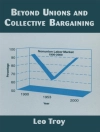Are established economic, social and political practices capable of dealing with the combined crises of climate change and the global economic system? Will falling back on the wisdoms that contributed to the crisis help us to find ways forward or simply reconfigure risk in another guise? This volume argues that the combination of global environmental change and global economic restructuring require a re-thinking of the priorities, processes and underlying values that shape contemporary development aspirations and policy.This volume brings together leading scholars to address these questions from several disciplinary perspectives: environmental sociology, human geography, international development, systems thinking, political sciences, philosophy, economics and policy/management science. The book is divided into four sections that examine contemporary development discourses and practices. It bridges geographical and disciplinary divides and includes chapters on innovative governance that confront unsustainable economic and environmental relations in both developing and developed contexts. It emphasises the ways in which dominant development paths have necessarily forced a separation of individuals from nature, but also from society and even from ‘self’. These three levels of alienation each form a thread that runs through the book. There are different levels and opportunities for a transition towards resilience, raising questions surrounding identity, governance and ecological management. This places resilience at the heart of the contemporary crisis of capitalism, and speaks to the relationship between the increasingly global forms of economic development and the difficulties in framing solutions to the environmental problems that carbon-based development brings in its wake.. Existing social science can help in not only identifying the challenges but also potential pathways for making change locally and in wider political, economic and cultural systems, but it must do so by identifying transitions out of carbon dependency and the kind of political challenges they imply for reflexive individuals and alternative community approaches to human security and wellbeing. Climate Change and the Crisis of Capitalism contains contributions from leading scholars to produce a rich and cohesive set of arguments, from a range of theoretical and empirical viewpoints. It analyses the problem of resilience under existing circumstances, but also goes beyond this to seek ways in which resilience can provide a better pathway and template for a more sustainable future. This volume will be of interest to both undergraduate and postgraduate students studying Human Geography, Environmental Policy, and Politics.
David Manuel-Navarrete & Mark Pelling
Climate Change and the Crisis of Capitalism [EPUB ebook]
A Chance to Reclaim, Self, Society and Nature
Climate Change and the Crisis of Capitalism [EPUB ebook]
A Chance to Reclaim, Self, Society and Nature
Beli ebook ini dan dapatkan 1 lagi GRATIS!
Bahasa Inggris ● Format EPUB ● Halaman 224 ● ISBN 9781136507670 ● Editor David Manuel-Navarrete & Mark Pelling ● Penerbit Taylor and Francis ● Diterbitkan 2012 ● Diunduh 6 kali ● Mata uang EUR ● ID 2360053 ● Perlindungan salinan Adobe DRM
Membutuhkan pembaca ebook yang mampu DRM












